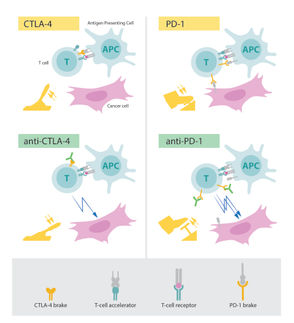Aventis Behring Announces Promising Results of a Phase IB Clinical Trial for Inhaleable Alpha1-Antitrypsin for Hereditary Emphy
Advertisement
Aventis Behring L.L.C. announced in Europe today the successful completion of a Phase IB clinical trial of a novel, inhaleable form of Alpha1-Antitrypsin (Human) currently under investigation for an inherited form of emphysema caused by Alpha1-Antitrypsin Deficiency.
All doses were well tolerated including the maximum amount administered. Dose related response was achieved. Further, doses were measurable in the deep lung where Alpha1-Antitrypsin bound to the neutrophil elastase. Neutrophil elastase, if left uncontrolled, leads to excessive inflammation and progressive emphysema. All patients were tested for antibodies to the drug, and no antibodies were detected to this natural human protein. Further, patients indicated in a post study survey that the Inhale delivery system is easy to use.
"Aventis Behring is pleased to be working with Inhale Therapeutic Systems to develop this revolutionary, inhaleable formulation of of Alpha1-Antitrypsin, which may provide a major breakthrough for the Alpha-1 Community. Additionally, our newly constructed Alpha1-Antitrypsin manufacturing facility in the United States is now in the validation phase", said Gail Schulze, Chief Operating Officer of Aventis Behring L.L.C. "Completion of these two steps moves us closer towards our goal of providing the Alpha-1 Community with a novel treatment option for this under-recognized disease."
"Inhale has been working to provide an easy-to-use portable delivery system for the Alpha-1 Community. A dry powder inhalation form of Alpha1-Antitrypsin may increase the efficiency of drug dosing compared to the current infusion therapy of Alpha1-Antitrypsin. Further, its shorter dosing time and more patient-friendly delivery mode could potentially improve patients quality of life", said Robert Chess, Chairman, Inhale Therapeutic Systems, Inc.
Alpha1-Antitrypsin Deficiency affects approximately 100,000 Europeans, according to the Alpha One Foundation, a not-for-profit organization dedicated to increasing the awareness and early diagnosis of this life-threatening genetic disorder. Unlike emphysema that develops as a result of smoke inhalation, emphysema caused by Alpha1-Antitrypsin Deficiency is an inherited condition that may affect both the structure and the function of the lungs and can lead to chronic emphysema and premature death if left untreated. Current treatment involves weekly intravenous infusions that may take up to two hours.
Under the collaboration between the two companies, Aventis Behring manufactures the active substance for treatment of Alpha1-Antitrypsin Deficiency, Alpha1-Antitrypsin. Inhale produces the inhaleable dry powder formulation for use with its proprietary inhalation system and processes and packages the powder for clinical supplies. Aventis Behring oversees the clinical program and will be responsible for the worldwide commercialization of any approved products resulting from the collaboration.












































